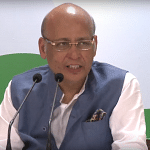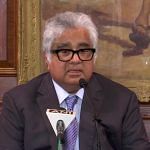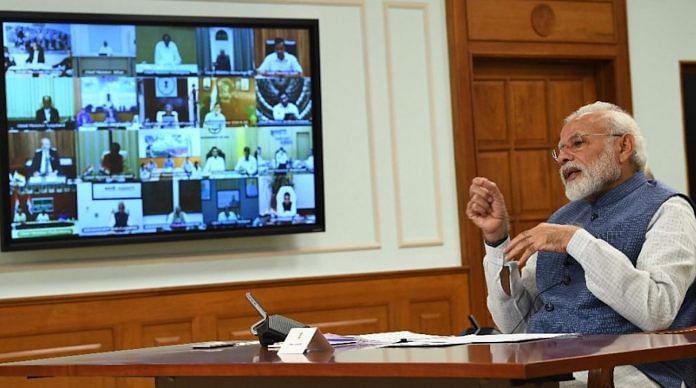 Management of lockdown, its aftermath, will shape balance of power between Centre and state
Management of lockdown, its aftermath, will shape balance of power between Centre and state
Sanjaya Baru | Policy analyst, Former media advisor to PM
The Indian Express
Baru writes that the management of the countrywide lockdown has put the focus on the role of state governments, their “uneven capacities” and varying quality of “provincial leadership”. The central government’s role, on the other hand, will be very important in handling the economic and financial aftermath of the lockdown. Baru argues that the way in which the central and state government resolve the issue of inadequate fiscal resources will, in future, become a “key issue” in Centre-state relations. He predicts that the focus of public policy will shift to areas where state governments and provincial leaders will have to play a larger role.
 The drift to the Left
The drift to the Left
C. Raja Mohan | Director, Institute of South Asian Studies, National University of Singapore
The Indian Express
Mohan asserts that the reversal of the “great rightward drift” since the 1980s has started. From UK’s Boris Johnson, whose win was premised on the working class vote, to US Democrat candidate Joe Biden’s left-leaning economic policies, the world is witnessing a distinct tilt towards the left, exacerbated by the coronavirus pandemic. Moreover, the perception that China, which is seen as the biggest beneficiary of globalisation, has taken advantage of the West has been reasserted by the coronavirus crisis. Mohan argues that the drift to the left, with de-globalisation, big government, focussing on redressing inequality and political weight of the working class, is bound to have a lasting impact on national economic strategies across the world.

Will force majeure apply to Covid
Abhishek Singhvi | Lawyer & Member of Parliament
Hindustan Times
Singhvi writes that the Covid-19 crisis has generated a set of legal issues that will have an impact on the weeks and months to come. Singhvi seeks to analyse how force majeure(FM), a provision in a legal contract that excuses a party from fulfilling contractual obligations under unanticipated and uncontrollable circumstances, applies to the Covid-19 crisis. He examines four scenarios — waiver of rent for inability to use rented office, paying wages when no income is generated, can building contract invoke FM, freeing party from legal obligation and finally does the national lockdown due to coronavirus pandemic bring any change to law at all. Singhvi here, suggests principles in legal terms and offers explanations on confusions pertaining to the above mentioned scenarios.
 The occasion to revisit the sovereign’s role
The occasion to revisit the sovereign’s role
Parakala Prabhakar | Former Communications Adviser to the Government of Andhra Pradesh
The Hindu
Prabhakar maintains that Covid-19 is forcing a “paradigm shift” and notes that India’s first responsibility must be towards the marginalised. He argues that prioritising the needs of corporate entities will lead to “convulsions in our body politic” after Covid-19. He suggests that the country must start a discourse on redefining aspects of our collective political, economic and social life. Finally he writes that the “Indian state should be strong so that the weak in our society can lean on it” and that the strength of the weak lies in sovereignty.

Corona and the courts
Harish Salve | Senior advocate at Supreme Court
The Times of India
Salve maintains that the Covid-19 outbreak is being seen as a threat to democracy. One of the most visible changes is how we look at our governments. “Political scientists, policymakers and even the courts have acknowledged that streamlined government decision making is vital in order to respond to this global health threat,” he writes. Moreover, the “alacrity” of the executive government in tackling this crisis cannot be praised enough. Salve writes that the contribution of public interest litigation in vindicating constitutional rights of those who have no voice has been “seminal”.
 Lockdown 2.0: Unemployment rate touches 26% amid Covid-19 outbreak
Lockdown 2.0: Unemployment rate touches 26% amid Covid-19 outbreak
Mahesh Vyas | MD & CEO, Centre for Monitoring Indian Economy P Ltd
Business Standard
Vyas writes that in the last week of March and in the first two weeks of April, the unemployment rate has been around 23-24 per cent — much higher than the 7-8 per cent rates seen before. The third week of April shows that matters are worsening, as the unemployment rate is now at 26.2 per cent, a figure that is “plausible” as prolonged lockdown is bound to worsen labour market conditions. Data shows that the employment rate has fallen from 40 per cent in February to 26 per cent now, which implies that 14 per cent of the working-class population of a billion people, i,e. 140 million Indians people have lost employment during the lockdown.

 The US and India have failed the developing world
The US and India have failed the developing world
C.P. Chandrasekhar | Professor at the Centre for Economic Studies and Planning, JNU
Jayati Ghosh | Indian economist
The Hindu Business Line
Chandrashekhar and Ghosh question why US and India have denied developing countries “much-needed liquidity” right now by blocking a recent IMF proposal to issue an additional 500 billion dollars of Special Drawing Rights (SDRSs). Due to the economic crisis caused by the Covid-19 pandemic, many had called upon the IMF to issue at least 1 trillion SDRs. The US argues that this amount would not have meant much as developing countries would only get a small share of the IMF’s allocation since their quotas are small. However, the fact is that this limited 500-billion issue could have still benefited them substantially. India blocking such a proposal could be because of “petty regional politics” or an attempt to appease Donald Trump’s government in order to access the US Fed’s exchange swaps.
 Coronavirus pandemic package 2.0: Steering India out of the COVID-19 storm
Coronavirus pandemic package 2.0: Steering India out of the COVID-19 storm
HR Khan | Retired deputy governor, Reserve Bank of India
Financial Express
Khan focuses on how the monetary and regulatory measures announced by the RBI demonstrates its resolve to “proactively” respond to the Great Virus Crisis (GVC) through both conventional and unconventional routes. It is anticipated that the banking sector will experience huge stress, but liquidity-enhancement measures like the reduction in cash reserve ratio (CRR), long-term repo operations (LTRO) and targeted LTRO should have a positive effect. The special “refinance window” of Rs 50,000 crore at the repo rate financial institutions like NABARD, SIDBI and NHB, supporting flow of credit to critical sectors like agriculture and rural development, SMEs and HFCs/MFIs is also a step in the right direction. More out-of-the-box measures can be thought of down the line, writes Khan.

 Coping with the lockdown
Coping with the lockdown
Soumya Kanti Ghosh | Chief economic advisor, State Bank of India
Pulak Ghosh | Professor, IIM Bangalore
 Sumit Agarwal | Professor, National University of Singapore
Sumit Agarwal | Professor, National University of Singapore
Business Standard
The authors stress on thinking beyond the lockdown by supporting the economy through a fiscal and monetary package, which will stop financial panic in fixed-income markets. Fiscal support will be crucial to “speed up” economic recovery post the pandemic through measures like goods and services rate cuts for sectors that have been hit the hardest. This might also help banks extend credit to businesses, by ensuring high revenues for these businesses. In the post-Covid-19 world, the banking system must play the role of financial intermediation. There should also be credit guarantees for sectors like small and medium enterprises (SMEs), along with fiscal packages to help SMEs manage their fixed and variable cost, through measures like providing relief towards rental payments and wages.
Today’s Editorials
The Indian Express: The daily calls the incident of the lynching of three men in Palghar a “shocking case of police faliure”. It is incumbent on the law and order machinery to be alert and vigilant and to counter rumours and prevent suspicion during these times of heightened anxiety, it writes. There should be no delay in taking appropriate action against those in the police who failed to take action against the culprits, demands Express.
Hindustan Times: The newspaper comments on PM Modi’s call for unity and says that a united response, laced with empathy, is the only way forward in these times. However, it adds, that the supporters of the ruling party itself have engaged in divisive rhetoric and blame an entire community. It comments that everyone should internalise the PM’s message and stop playing politics over the pandemic.
The Times of India: The government should emphasise more on relaxing restrictions to resume economic activity as a way to firm up the end strategy, TOI writes. Implementing physical distancing measures for elderly people must take priority now. Young people should be allowed to get back on their feet and lead the country’s economic charge once again. The daily stresses on striking the right balance between physical distancing and economic activity to bring the lockdown to an end.
The Hindu: The daily supports the government’s decision to restrict FDI for China. However, it notes, that the government could have taken a nuanced approach. A distinction should also have been made based on the class of investors and greenfield investments should have been kept out of the purview as they do not pose a threat of takeover of existing business.
With inputs from Unnati Sharma




Great content.loved it. Thanx for all your hardwork